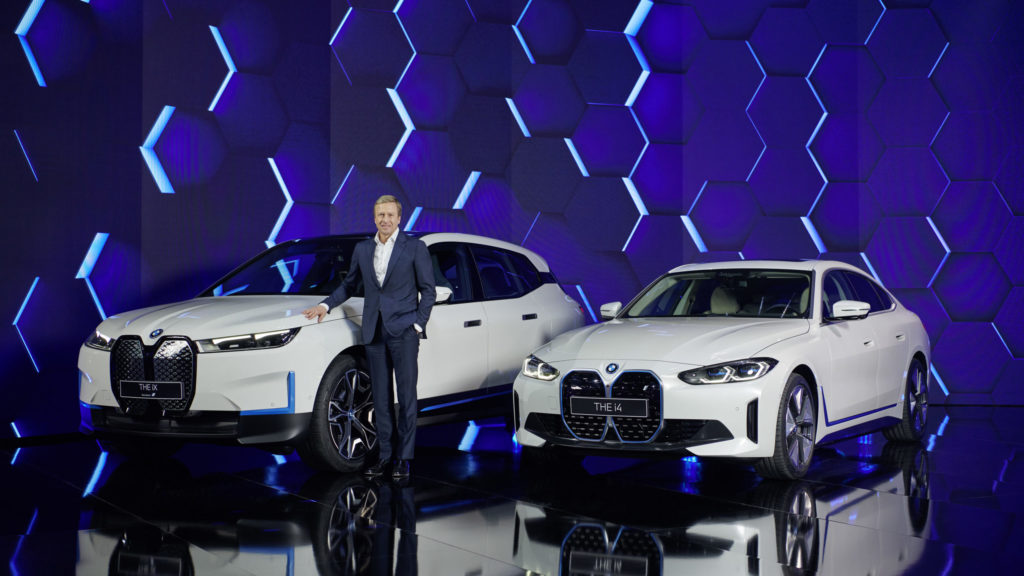BMW is stepping up its commitment to being a global leader in terms of sustainability and reducing its carbon footprint. At the company’s annual general meeting, new CO2 reduction goals were put forward, including a target to avoid over 220,00,000 tons of carbon emissions by 3020, which is equivalent to more than twenty times the annual CO2 emissions of a city with over 1,000,000 residents, not unlike Munich.
The automaker is looking to achieve its aggressive goal by reducing the carbon footprint of its vehicles throughout their lifestyle, from the extraction of raw materials, through the use phase, and to end-of-life recycling.
One example is BMW working to develop next-generation battery cells which will offer uncompromising performance while being produced in the least impactful way possible. BMW ultimately aims to develop sustainable battery cells that are recyclable, which would be an industry first. At the other end of the chain, BMW is looking to reduce the carbon footprint of high-voltage batteries by half. The battery housing used in the BMW iX is already made from up to 30% recycled aluminum while the battery cells contain up to 50% “secondary” nickel. On the same coin, BMW has also reduced the amount of cobalt used in cathode material to produce batteries to less than 10%.
Another way is BMW transitioning all of its production facilities and manufacturing plants to carbon neutrality from 2021 onward. This is realized by powering a number of the large plants which comprise the automaker’s global decentralized production network with renewable energy of varying forms, in addition to the purchasing of offset credits where applicable. Purchasing credits and similar measures are only employed for carbon emissions that are unavoidable.
Dr-Ing. h.c. Norbert Reithofer, Chairman of the Supervisory Board of BMW AG.
“A climate-friendly car is not created solely by using green power. We must design our vehicles for sustainability from the very first day of development: reducing the amount of material used to manufacture them and, above all, planning for reuse and recycling from the very beginning. In the face of rising raw material prices, this is not just an environmental, but also a business imperative,” said Oliver Zipse, chairman of the Board of Management of BMW AG, at the annual general meeting in Munich. “The technology for this is extremely demanding: That is why we want to lead the way on the circular economy and play a pioneering role. We are already working on quotas for the use of secondary material in our “Neue Klasse” that are both concrete and ambitious to meet our high standards.”
BMW’s upcoming Neue Klasse platform is central to the automaker’s plans, and key to embracing what BMW refers to as the circular economy, in which waste is essentially eliminated. Neue Klasse is set to realize this by way of reduced materials necessary for manufacturing, and an increased share of so-called secondary, or recycled materials like steel, plastics, and aluminum. In addition to helping BMW realize its sustainability and carbon reduction goals, Neue Klasse also poses a business advantage, requiring fewer inputs in a world where shortages and scarcity seem to be growing in terms of frequency.
We’ve already mentioned some of the automaker’s other intentions on this site before, including electrical vehicles accounting for at least 50% of sales by 2030, and being ten times their 2020 volume by 2025. This is being achieved by what’s been referred to as an electric offensive, with a substantial number of purely electric and plug-in hybrid models hitting the market in the coming years. BMW CEO Oliver Zipse summarized the sentiment of the annual general meeting by declaring, “We want to play a pioneering role in the circular economy.”—Alex Tock
Dr Nicolas Peter, Member of the Board of Management of BMW AG, Finance.
[Photos courtesy BMW AG.]
